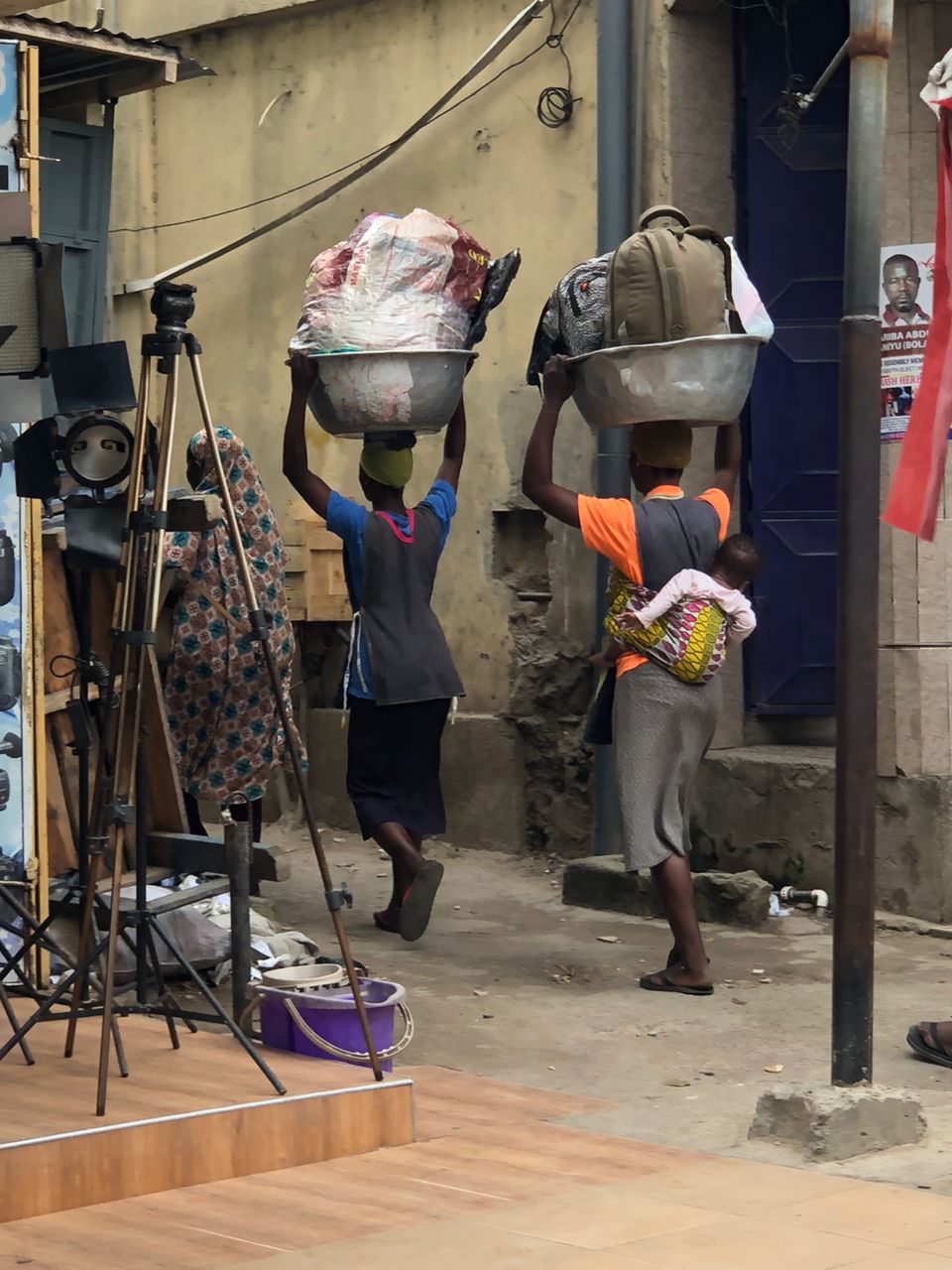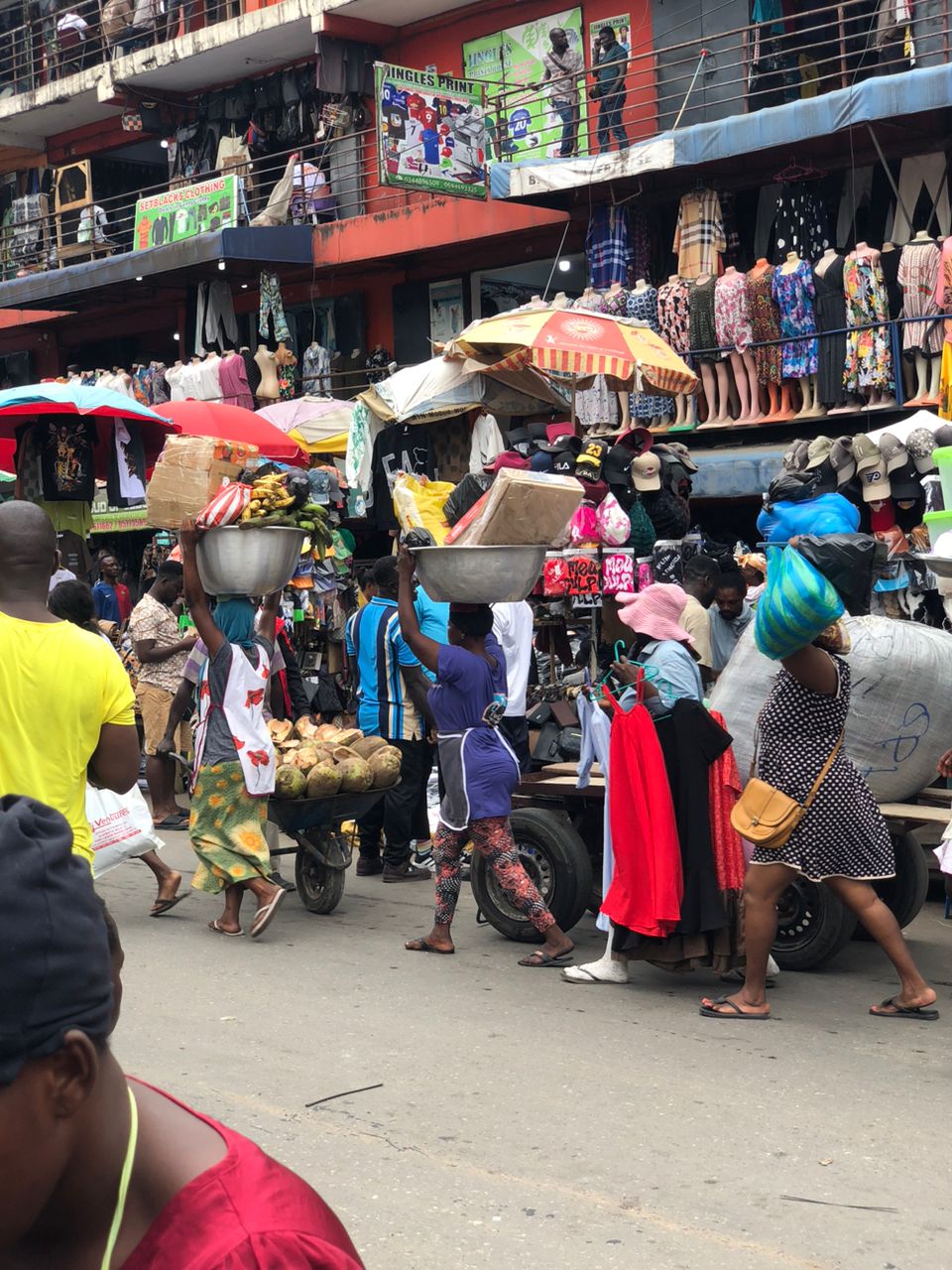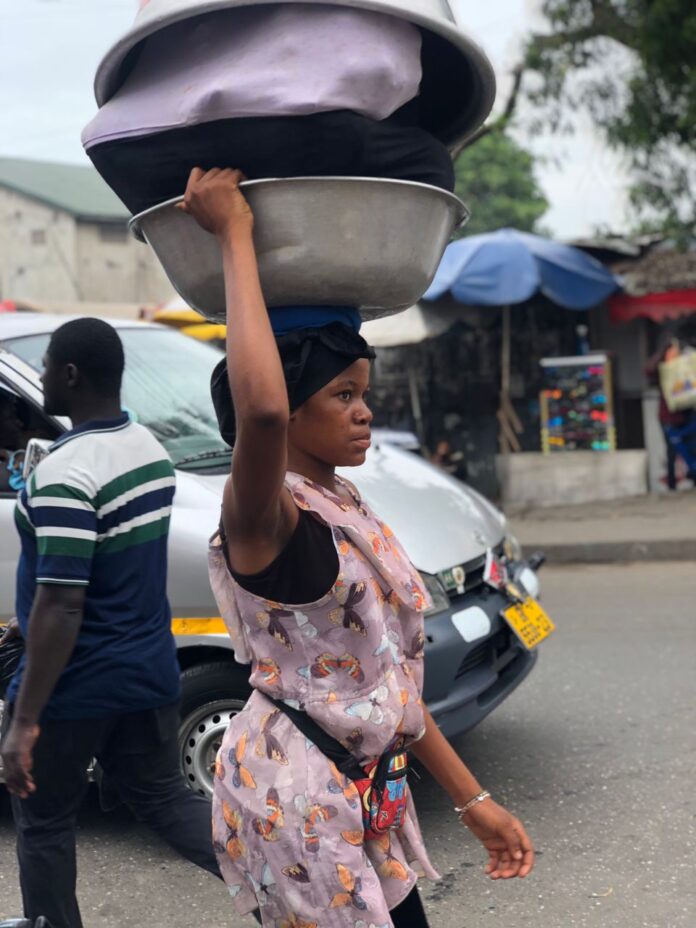In the bustling city of Accra, head porters, commonly known as “Kayayei,” are predominantly young women and girls who migrate from the northern regions of Ghana to urban centres like Accra and Kumasi in search of better economic opportunities.
However, instead of finding prosperity, they often end up trapped in deplorable economic conditions characterized by poverty, limited access to essential services, and social marginalization.
The term “Kayayei” is derived from the Ga language and refers to female head porters.
These women, typically aged between 8 and 45, are often school dropouts or escapees of harmful cultural practices like forced marriages and female genital mutilation.
The journey south has become a generational pattern, often trapping these women in a cycle of poverty and exploitation.
They work long hours, carrying heavy loads on their heads through markets and lorry stations, assisting traders, and performing domestic chores under harsh conditions.

Despite their efforts, they earn minimal pay and are frequently subjected to abuse, victimization, and exploitation.
Their rest periods are dictated by the demand for their services, with Fridays and Saturdays being the busiest days.
Challenges and Vulnerabilities
The aspirations of these young women—to make money in Accra, return home, continue their education, and start businesses—are often crushed by the harsh realities they face in the city.
Working in the informal sector for low wages, Kayayei lack access to basic healthcare and education, which perpetuates their poverty.
Many are forced to sleep in overcrowded and unsanitary conditions, exposing them to harsh weather and health issues such as respiratory infections and skin diseases.
Additionally, they are at high risk of sexual harassment, exploitation, stigmatization, and violence, with little to no legal protection or recourse against their abusers.
Despite these hardships, Kayayei demonstrate remarkable resilience in coping with the physical demands of their job.

They often take rest days when their health does not allow them to work, relying on painkillers to relieve constant pain instead of seeking proper medical care.
However, these coping mechanisms are far from ideal and can lead to further health issues.
Their low incomes and unstable living conditions create significant barriers to accessing proper healthcare.
In an interview with Adom News at the Tema Station, Farida, a Kayayoo (singular form of Kayayei), expressed her disillusionment:
“I thought Accra was like living abroad, but it is far from what I imagined. We sleep outside and lack access to adequate food, so we resort to eating once a day.
If I were home, I would have had tuo to eat and a good sleep in my room. Here, we are exposed to mosquitoes and the cold weather.
“I regret coming to Accra. I won’t repeat this mistake in my next life.”
Kayayei are socially, politically, and economically invisible, with their contributions to the informal sector often going unrecognized.
Their plight underscores the need for interventions that address the root causes of their migration, such as poverty and the lack of economic opportunities in the northern regions of Ghana.
Addressing these challenges requires comprehensive and sustainable solutions.
Source: Naa Yarteley Acquah & Yayra Lawoe


